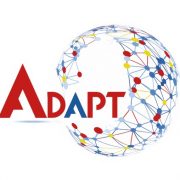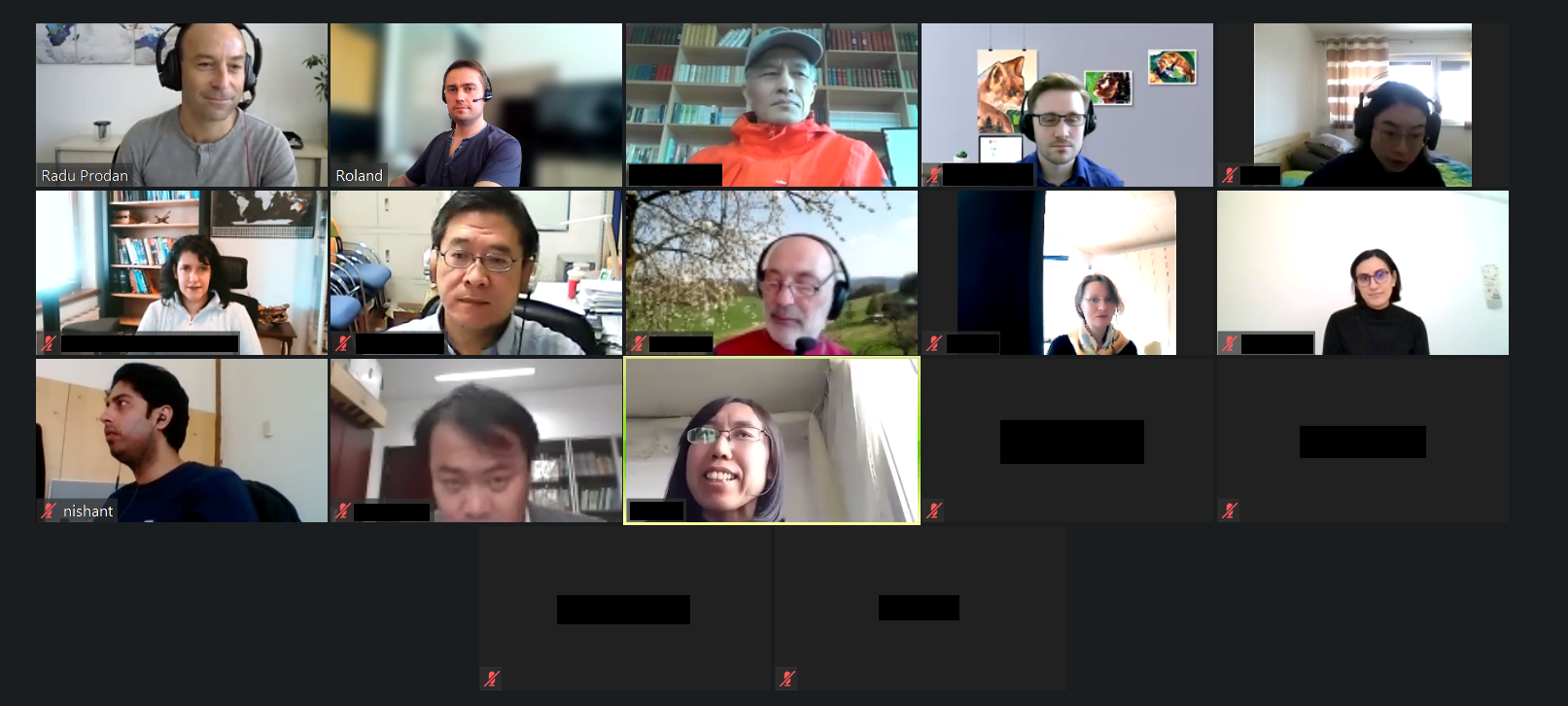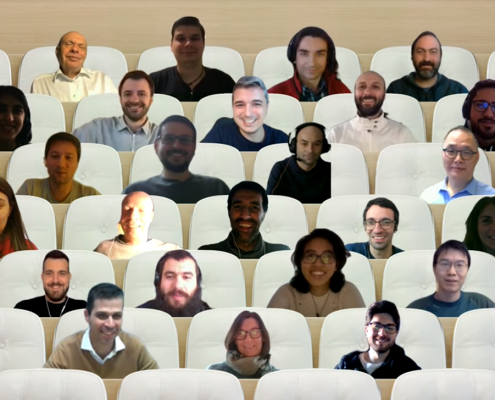Distributed and Parallel Systems
Prof. Radu Prodan has been nominated as Management Committee (MC) Member CA19135 at COST (European Cooperation in Science & Technologie).
Conference: 15th International Conference on Research Challenges in Information Science
Title : DataCloud: Enabling the Big Data Pipelines on the Computing Continuum
Authors: Dumitru Roman, Nikolay Nikolov, Brian Elvesæter, Ahmet Soylu, Radu Prodan, Dragi Kimovski, Andrea Marrella, Francesco Leotta, Dario Benvenuti, Mihhail Matskin, Giannis Ledakis, Anthony Simonet-Boulogne, Fernando Perales, Evgeny Kharlamov, Alexandre Ulisses, Arnor Solberg and Raffaele Ceccarelli
Prof. Radu Prodan is a keynote speaker at Memphis DATA 2021, 25th-26th March 2021.
Talk Abstract: We live in a digital world estimated to host around 4 billion Internet users and 10 billion of mobile connections generating 2.5 billion billion of data every day. Managing and extracting value from this sheer amount of raw data requires deep software analysis tools on massive distributed and parallel computing infrastructures aggregating billions of cores and threads. The talk gives an overview of the research activities at the University of Klagenfurt, Austria, on optimising system software support for extreme-scale data processing applications, with focus on scientific simulations, social media and massively multiplayer online games.
Title: WELFake: Word Embedding over Linguistic Features for Fake News Detection
Authors: Pawan Kumar Verma (Lovely Professional University, India | GLA University, India), Prateek Agrawal (University of Klagenfurt, Austria | Lovely Professional University, India), Ivone Amorin (MOG Technologies | University of Porto, Portugal), Radu Prodan (University of Klagenfurt, Austria)
Abstract: Social media is a popular medium for dissemination of real-time news all over the world. Easy and quick information proliferation is one of the reasons for its popularity. An extensive number of users with different age groups, gender and societal beliefs are engaged in social media websites. Despite these favorable aspects, a significant disadvantage comes in the form of fake news, as people usually read and share information without caring about its genuineness. Therefore, it is imperative to research methods for the authentication of news. To address this issue, this paper proposes a two phase benchmark model named WELFake based on word embedding (WE) over linguistic features for fake news detection using machine learning classification. The first phase pre-processes the dataset and validates the veracity of news content by using linguistic features. The second phase merges the linguistic feature sets with WE and applies voting classification. To validate its approach, this paper also carefully designs a novel WELFake dataset with approximately 72,000 articles, which incorporates different datasets to generate an unbiased classification output. Experimental results show that the WELFake model categorises the news in real and fake with a 96.73% which improves the overall accuracy by 1.31% compared to BERT and 4.25% compared to CNN models. Our frequency-based and focused analyzing writing patterns model outperforms predictive-based related works implemented using the Word2vec WE method by up to 1.73%.
Acknowledgement: ARTICONF project
The full paper has been accepted to the main-track of the International Conference on Computational Science (ICCS’21). Conference will be organized in a virtual format on 16-18 June, 2021.
Title: Monte-Carlo Approach to the Computational Capacities Analysis of the Computing Continuum
Authors: Vladislav Kashansky, Gleb Radchenko, Radu Prodan
Abstract: This article proposes an approach to the problem of computational capacities analysis of the computing continuum via theoretical framework of equilibrium phase-transitions and numerical simulations. We introduce the concept of phase transitions in computing continuum and show how this phenomena can be explored in the context of workflow makespan, which we treat as an order parameter. We simulate the behavior of the computational network in the equilibrium regime within the framework of the XY-model defined over complex agent network with Barabasi-Albert topology. More specifically, we define Hamiltonian over complex network topology and sample the resulting spin-orientation distribution with the Metropolis-Hastings technique. The key aspect of the paper is derivation of the bandwidth matrix, as the emergent effect of the “low-level” collective spin interaction. This allows us to study the first order approximation to the makespan of the “high-level” system-wide workflow model in the presence of data-flow anisotropy and phase transitions of the bandwidth matrix controlled by the means of “noise regime” parameter. For this purpose, we have built a simulation engine in Python 3.6. Simulation results confirm existence of the phase transition, revealing complex transformations in the computational abilities of the agents. Notable feature is that bandwidth distribution undergoes a critical transition from single to multi-mode case. Our simulations generally open new perspectives for reproducible comparative performance analysis of the novel and classic scheduling algorithms.
Keywords: Complex Networks, Computing Continuum, Phase Transitions, Computational Model, MCMC, Metropolis-Hastings, XY-model, Equilibrium Model
Acknowledgement: This work has received funding from the EC-funded project H2020 FETHPC ASPIDE (Agreement #801091)
The paper “Multilayer Resource-aware Partitioning for Fog Application Placement” has been accepted for publication at the 5th IEEE international conference on Fog and Edge computing 2021 (ICFEC 2021) , with an acceptance rate of 17% for regular papers.
Authors: Zahra Najafabadi Samani, Nishant Saurabh, Radu Prodan
Abstract: Fog computing emerged as a crucial platform for the deployment of IoT applications. The complexity of such applications requires methods that handle the resource diversity and network structure of Fog devices, while maximizing the service placement and reducing resource wastage. Prior studies in this domain primarily focused on optimizing application-specific requirements and fail to address the network topology combined with the different types of resources encountered in Fog devices. To overcome these problems, we propose a multilayer resource-aware partitioning method to minimize the resource wastage and maximize the service placement and deadline satisfaction rates in a Fog infrastructure with high multi-user application placement requests. Our method represents the heterogeneous Fog resources as a multilayered network graph and partitions them based on network topology and resource features. Afterward, it identifies the appropriate device partitions for placing an application according to its requirements, which need to overlap in the same network topology partition. Simulation results show that our multilayer resource-aware partitioning method is able to place twice as many services, satisfy deadlines for three times as many application requests, and reduce the resource wastage up to 15-32 times compared to two availability and resource-aware state-of-the-art methods.
The paper “A Two-Sided Matching Model for Data Stream Processing in the Cloud–Fog Continuum” has been accepted for publication at the 21st IEEE/ACM international Symposium on Cluster, Cloud and Internet Computing (CCGrid 2021).
Authors: Narges Mehran, Dragi Kimovski, and Radu Prodan
Abstract: Latency-sensitive and bandwidth-intensive stream processing applications are dominant traffic generators over the Internet network. A stream consists of a continuous sequence of data elements, which require processing in nearly real-time. To improve communication latency and reduce the network congestion, Fog computing complements the Cloud services by moving the computation towards the edge of the network. Unfortunately, the heterogeneity of the new Cloud–Fog continuum raises important challenges related to deploying and executing data stream applications. We explore in this work a two-sided stable matching model called Cloud–Fog to data stream application matching (CODA) for deploying a distributed application represented as a workflow of stream processing microservices on heterogeneous Cloud–Fog computing resources. In CODA, the application microservices rank the continuum resources based on their microservice stream processing time, while resources rank the stream processing microservices based on their residual bandwidth. A stable many-to-one matching algorithm assigns microservices to resources based on their mutual preferences, aiming to optimize the complete stream processing time on the application side, and the total streaming traffic on the resource side.
We evaluate the CODA algorithm using simulated and real-world Cloud–Fog scenarios. We achieved 11 to 45 % lower stream processing time and 1.3 to 20 % lower streaming traffic compared to related state-of-the-art approaches.
The project “Kärntner Fog: A 5G-Enabled Fog Infrastructure for Automated Operation of Carinthia’s 5G Playground Application Use Cases” proposes a new infrastructure automation use case in the 5G Playground Carinthia (5GPG). Kärntner Fog plans to create and deploy a
distributed service middleware infrastructure over a diverse set of novel heterogeneous 5G edge devices, complemented by a high-performance Cloud data center accessible with low latency according to 5G standards. Such an infrastructure is currently missing in the 5GPG and will represent a horizontal backbone that interconnects and integrates the application use cases. Kärtner Fog will automate the development and operation of the applications use cases in the 5GPG in an integrated and more cost-effective fashion to enable more science and innovation within a limited budget.
Involved Organisations: BABEG, ITEC@AAU, ONDA TLC GmbH, FFG/KWF
Coordinator: Prof. Radu Prodan
Project Start: 01.01.2021
Project Duration: 48 months








